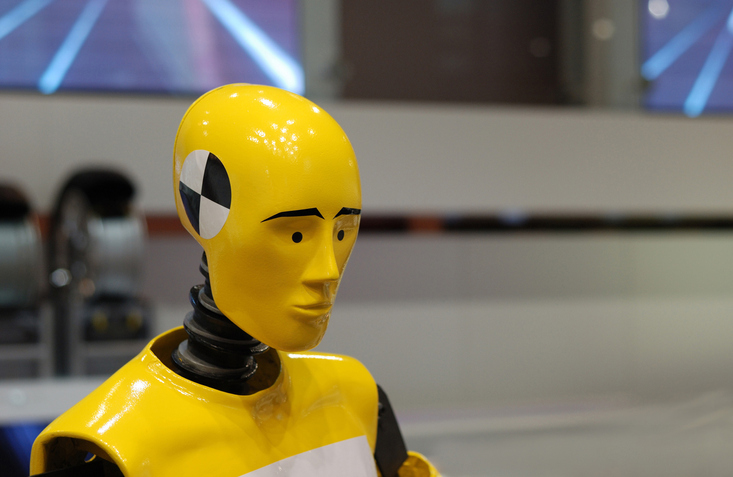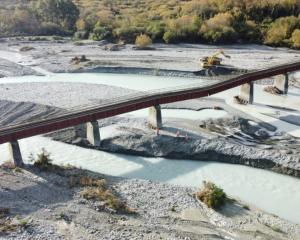
A report obtained by RNZ shows the government will consider preventing cars that have a poor safety rating from entering the vehicle fleet.
They will also look into accelerating the removal of unsafe cars from the current fleet.
Of the five most popular used cars imported into the country last year, three could be banned under the proposal.
The Suzuki Swift, the nation's second most popular used car, has a safety rating of one or two stars and would no longer be imported.
Toyota Corollas built prior to 2008, and any Mazda Demio - the fourth and fifth most popular used cars respectively - would also be banned from being imported.
Peter Johnston has been involved with importing cars for decades, and said banning some cars would not make the roads safer.
"I don't know who's cooking this all up, but this is absolute nonsense," Mr Johnston said.
"You know, if we come back to the road toll, the road toll is more about driver error.
"As far as vehicles go, our vehicles have improved. If you go back 20 years ago, before Japanese imports, we had a lot of very unsafe cars on the road.
"But with the advent of Japanese imports, the cars became a lot safer, they had airbags, they've got power steering, air-conditioning, they're a lot better quality car."
Banning one-star and two-star vehicles from entering the fleet was one of the top five priorities set out by the Vehicle, Vehicle Standards and Certification Reference Group, one of five groups advising the government on its new road safety strategy which will replace Safer Journeys next year.
RNZ revealed last week the Speed Reference Group had proposed adopting the Swedish model for speed camera use, which would mean hundreds more sign-posted cameras and higher fines.
Both reports said about 45 percent of cars had a safety rating of one or two stars, and about 65 percent of deaths and serious injuries on the road were in those cars.
The Vehicle, Vehicle Standards and Certification Reference Group report said one of the top five priorities was "preventing unsafe light vehicles from entering the fleet by banning one and two star vehicles or by raising standards".
Mark Stockdale, the principle advisor of regulations at the Automobile Association, said the AA supported the proposal but wanted other measures to be taken first.
"What we'd like to see first is actually the public to be better educated around the safety ratings of the existing fleet that we already have in New Zealand, so that people can make safer choices about the vehicles that are already on the market."
Mr Stockdale said the safety ratings of cars should be made clear to people looking to buy one.
"You can have one that has a high safety rating, and one that has a low safety rating - regardless of the age and regardless of the price - and yet the public aren't very well informed about that," Mr Stockdale said.
"So the best way to do that is to require the safety rating, whether it's a new car safety rating or the used car safety rating, to require that information to be supplied at the point of sale."
There are two safety ratings commonly used in New Zealand - the Australasian New Car Assessment Programme, or ANCAP, which uses controlled crash tests, and the Used Car Safety Ratings, which are based on real-life crash data.
The Transport Agency said it used the ANCAP rating until a car was seven years old, and then used the Used Car Rating, to calculate that about 45 percent of cars have a one or two star rating.
Mr Johnston said that regardless of the data, cars were not the biggest problem on the road.
"There's probably at least 30 percent of those accidents where there was drink involved, or drug drivers," he said.
"And now they're trying to pass legislation also to make cannabis legal in New Zealand ... so, look, something doesn't compute. This is absolute fairyland stuff."
Ministry of Transport mobility and safety manager Brent Johnston led the Vehicle, Vehicle Standards and Certification Reference Group, and said the government was yet to consider any of the reference group reports.
"Neither the reference group reports, or the discussions therein constitute government policy, and reference group members were advised they were not expected to reach a consensus," Brent Johnston said.
"The reference group reports are the views of a broad section of society, with over 100 people having their input."
The government is set to review the reports then propose a new road safety strategy which will go out for consultation later this year.
Comments
"You know, if we come back to the road toll, the road toll is more about driver error"
Quite right.
Irrespective of "driver error", if you are in a car with a lower safety rating you are far more likely to be seriously injured in a crash. Removing the more dangerous cars from the road will certainly help with the road toll, and with the ACC costs of injury accidents.
For Peter Johnston to claim it will make no difference is disingenuous at best.
It's misleading reporting to say a Suzuki Swift has a 1 or 2 star safety rating when for years they've had a five star rating.
In 2011 even the cheapest Swift model available had 7 airbags.
Even Suzuki Swift models as old as 2005 have a 4 star rating.
https://rightcar.govt.nz/ancap-test-result.html?q=271
"Mr Johnston said that regardless of the data, cars were not the biggest problem on the road.
"There's probably at least 30 percent of those accidents where there was drink involved, or drug drivers," he said."
Well guess what. 100% of car accidents are caused by drivers. Because without drivers, cars would be parked...
So how about FIXING DRIVER SKILLS before wasting more time trying to fix things that aren't that broken. I swear those in power are literally as thick as mud, they're putting all this effort into reducing driver speeds and taking 'bad' cars off the road, and bewilderingly missing the main source of crashes - the people driving the cars!
How on earth are we going to get this message through to them, ODT, as the longer they muck around with speed/car 'fixes' the more people will continue to crash!
I'm dumbfounded, i really am. How are they not even remotely considering driver improvement etc courses?












